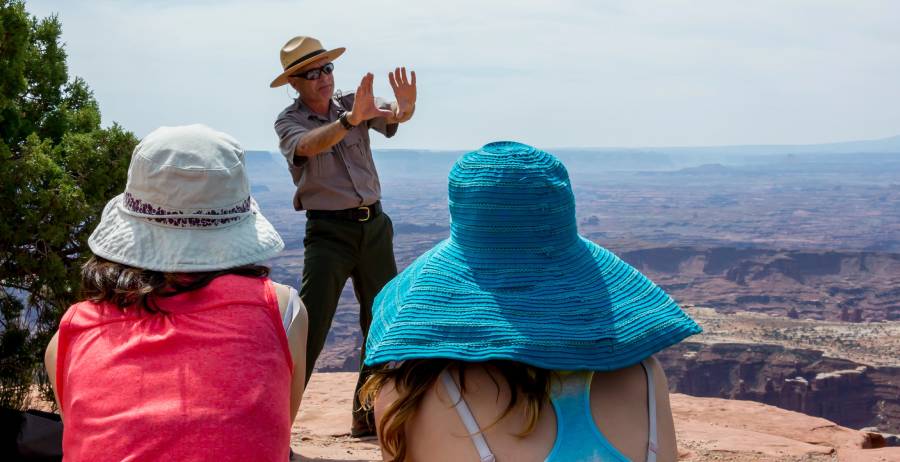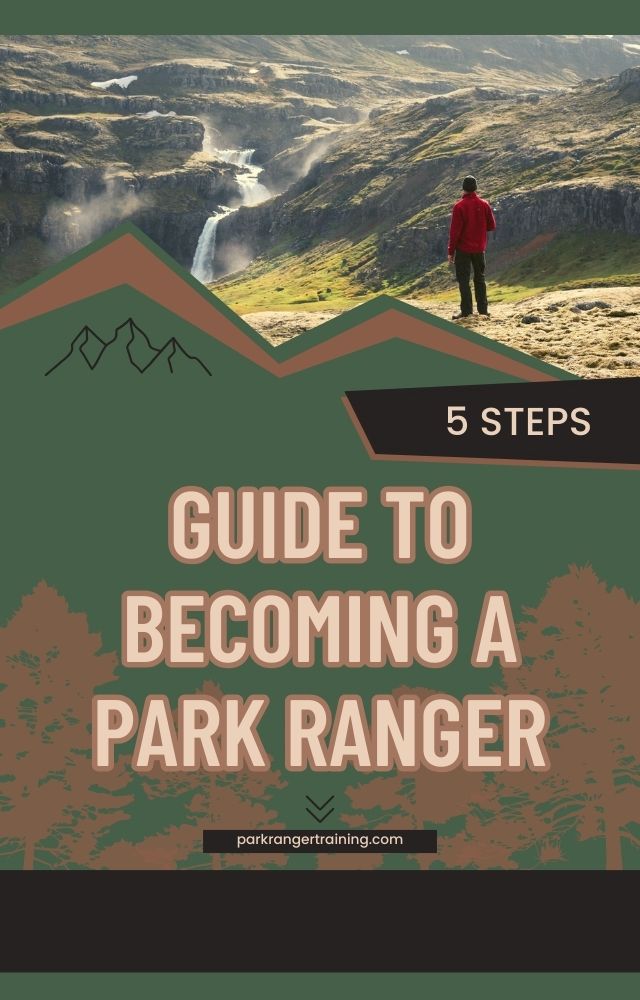Becoming a park ranger is a journey that involves a combination of education, on-the-job training, and navigating the application process. The timeline can vary, but typically, it takes about 3 to 5 years to become a state park ranger. This includes completing a relevant college degree, gaining experience, and completing the hiring process, which may include a psychological evaluation and adherence to the laws and regulations set by the Department of Parks and Recreation. If you’re looking to work in visitor centers or in the field, this timeline can fluctuate based on specific job requirements and the competitiveness of the position.
The initial step is often obtaining a relevant educational background, followed by accruing experience in parks, forests, or conservation areas. Aspiring rangers might start by volunteering or interning, which provides crucial insights into the role. After meeting the minimum eligibility criteria, candidates must apply and successfully pass through the selection process, which can be extensive and competitive. The application process may include tests, interviews, and a rigorous background check.
Once hired, new rangers typically undergo a period of on-the-job training, which can last from a few months to over a year. This training is essential to prepare them for the diverse challenges they will face on the job. During this time, they learn specific skills related to their duties, ranging from public interaction to emergency response. For those aiming to become specialized, such as in law enforcement within state or national parks, additional training or certifications may be required, lengthening the overall time to become fully qualified.
Understanding the Role of a Park Ranger
The role of a park ranger is multifaceted, often compared to that of a game warden, with responsibilities that span across conservation, education, and enforcement. Park rangers are tasked with preserving the natural environment, providing educational outreach, enforcing park rules, and ensuring visitor safety. They serve as custodians of the nation’s parks, working to protect wildlife and ecosystems while offering memorable experiences to visitors.
Essential Functions and Responsibilities
As a park ranger, you are responsible for a wide array of tasks that are crucial to maintaining park integrity and visitor satisfaction. Among these roles, you may be involved in rescue operations, which require a high level of training and preparedness. Whether it’s aiding lost hikers, administering first aid, or responding to wildlife encounters, rangers must be ready to react swiftly and effectively to emergencies.
Forest Rangers vs. National Park Rangers
Park rangers typically serve in either state or national parks, with forest rangers focusing on forested areas. While park ranger positions at national recreation sites like Grand Canyon National Park are sought after, they differ from forest ranger roles, which may emphasize wildfire suppression and land management. At both state and national parks, rangers ensure public safety, manage crowd control, and engage in manual labor. State and federal agencies hire and train rangers according to specific needs, and whether you’re in a state or federal park, a park ranger’s duties can vary significantly. Federal parks often require more extensive training due to larger visitor numbers and more complex ecosystems.
Conservation Efforts vs. Law Enforcement Roles
In the realm of park ranger duties, there is a distinct difference between conservation efforts and law enforcement roles. Conservation-focused rangers work to protect and manage natural resources, spearheading initiatives to maintain habitat health and biodiversity. In contrast, law enforcement rangers are responsible for enforcing park rules, conducting patrols, and ensuring visitor safety. They may carry out investigations, make arrests, and collaborate with other law enforcement agencies to uphold the laws designed to safeguard park environments and their inhabitants.

Educational Pathways to Becoming a Park Ranger
Aspiring park rangers have several educational pathways available to them, with many opting to pursue degrees related to environmental science or wildlife management. Some may choose to specialize in a specific area of park management, such as interpretation or conservation, which can enhance their qualifications and improve their prospects in the competitive application process for park ranger positions. These educational pursuits are often complemented by hands-on experiences that are critical to understanding the practical aspects of the job.
High School Preparation for Aspiring Park Rangers
If you’re a high school student interested in becoming park rangers, you can start preparing early by engaging in volunteer opportunities offered through organizations like the Student Conservation Association. These experiences can provide a glimpse into the career and help develop relevant skills. Additionally, focusing on subjects such as biology, environmental science, and geography can lay a solid foundation for future academic pursuits in this field.
College Degrees and Majors Relevant to Park Ranger Roles
To become a park ranger, a college degree in fields related to environmental science is often essential. Those aiming for law enforcement roles within park services may also consider academic paths similar to those of a game warden, which often include criminal justice alongside environmental studies. These combined disciplines provide a comprehensive understanding of both natural resource management and the legal aspects of protecting these resources.
Bachelor’s Degrees in Environmental Fields
Prospective park rangers typically pursue bachelor’s degrees in environmental fields such as earth sciences, wildlife and forestry, and natural resource management. Academic majors relevant to park service roles are varied and can also include ecology, environmental policy, or park and recreation management. Aspiring park rangers should consider majors that offer a blend of theoretical knowledge and practical application to prepare for the multifaceted nature of the job.
Advanced Degrees and Specializations
Prospective park rangers interested in advancing their careers or specializing in certain aspects of park management may pursue advanced degrees in earth sciences, wildlife and forestry, or natural resource management. These programs allow for a deeper dive into academic majors relevant to park service roles and can be particularly beneficial for those aspiring to leadership positions or roles that require a high level of expertise in specific areas of park operations.
Gaining Experience Before Application
Before applying to become a park ranger, gaining relevant experience is vital. Working or volunteering in park management, nature centers, outdoor education centers, or parks and forests can provide invaluable insights and skills. This hands-on experience not only enhances a resume but also offers a practical understanding of the day-to-day operations and challenges faced in park service roles.
The Importance of Volunteer Work and Internships
While a college degree is critical, complementing your academic background with volunteer work and internships is just as important. Opportunities in nature centers and outdoor education centers allow you to apply theoretical knowledge in real-world settings, which can significantly bolster your application when applying for park ranger positions.
State and County Park Opportunities for Future Rangers
For those aspiring to become a game warden or park ranger, state and county parks offer numerous opportunities to gain experience. Duties in state parks often include managing recreational areas, providing tours and educational programs, and assisting with conservation projects. Hands-on experience in these settings can be a valuable stepping stone towards a career as a park ranger.
Park-Specific Volunteer Programs
Participating in park-specific volunteer programs can be a strategic move for those without a college degree, as it provides direct experience and networking opportunities within the park services. These programs allow you to demonstrate your commitment and passion for the role, which can be advantageous during the hiring process.
Internship Programs within Park Services
Internship programs within park services offer structured experiences that are ideal for those looking to enter the field. These programs often provide hands-on training and mentorship, allowing interns to develop a strong understanding of the operations and challenges park rangers face while building professional relationships that can be beneficial in future job searches.
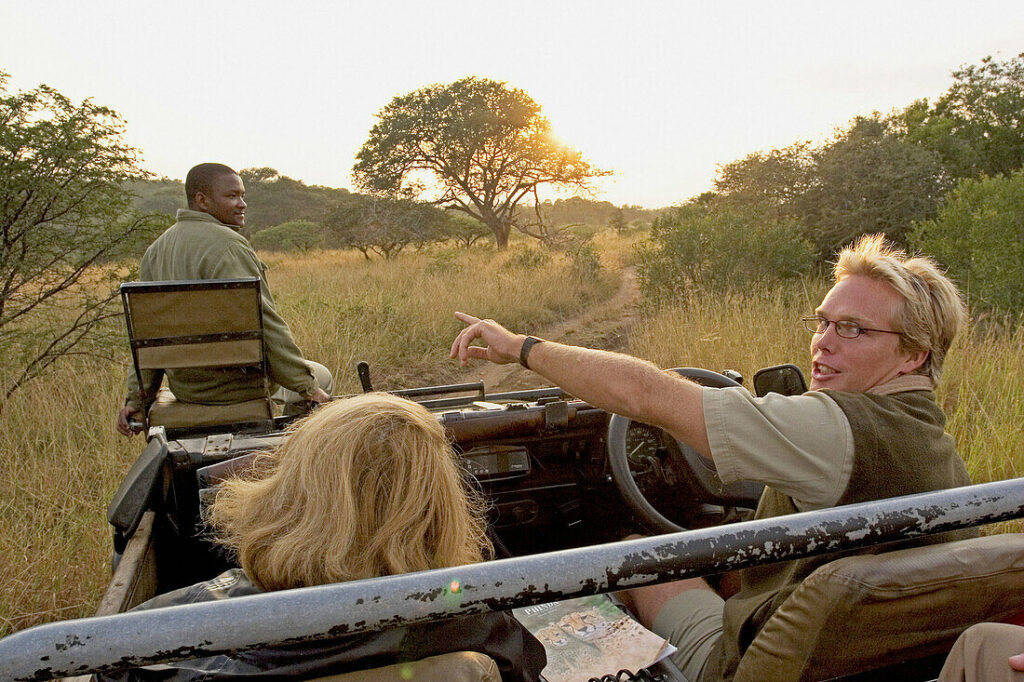
The Hiring Process for Park Rangers
The journey to becoming a park ranger begins with a robust hiring process, designed to select individuals who are not only passionate about conservation but also meet the rigorous standards required for the role. This process typically involves a series of steps, including meeting minimum requirements, passing physical and background checks, and participating in training programs.
Meeting the Minimum Eligibility Requirements
To start your path as a park ranger, you must first ensure you meet the minimum eligibility requirements. These generally include having a combination of education and experience related to resource protection, environmental education, or law enforcement. Moreover, having a solid foundation in subjects like ecology, biology, or park management will strengthen your application.
Age, Physical, and Background Check Criteria
All applicants must pass a physical fitness test as part of the application process, demonstrating the ability to perform the demanding duties of a park ranger. Age requirements can vary, but you must be at least 21 years old for most positions. Background checks are stringent, as integrity and trustworthiness are non-negotiable traits in this field.
Understanding the Disqualifiers for Park Ranger Candidates
Aspiring park rangers should be aware of disqualifiers that can derail their applications. These may include a history of serious law violations, substance abuse, or other behaviors that would compromise their ability to maintain the safety and integrity of the parks and the public. Transparency and honesty during the application process are critical.
Applying to Become a Park Ranger
If you’re interested in becoming a park ranger, start by applying to positions that align with your skills and experience. Highlight any training programs you’ve completed, especially those with a law enforcement capacity if the role requires it. A valid driver’s license is typically necessary, and experience with guided tours can be a plus for roles involving public education.
Park Ranger Training and Education Programs
Prospective rangers often embark on various training and education programs to prepare for the diverse challenges of the role. These programs range from college coursework in environmental science to specialized academy training. Depending on the position, an associate’s degree may be sufficient, but many management positions require a four-year degree.
Ranger Training Programs and Academies
Park ranger recruits often attend academy training, which provides both theoretical knowledge and practical skills essential for the job. Topics covered can include park regulations, hunting and fishing regulations, and emergency response. Successful completion of such programs is a critical step for those aiming to enter the profession.
Specialty Training for Law Enforcement Rangers
For park ranger positions with a law enforcement component, specialized training is a must. This includes academy training in arrest techniques, conducting investigations, and understanding the basics of law enforcement. The strict pre-employment processes for these roles ensure that rangers are well-prepared to protect both the parks and their visitors.
Wildlife Conservation and Management Courses
Understanding the intricacies of wildlife conservation is central to a park ranger’s role. Courses in this field cover a variety of topics, from habitat preservation to species monitoring, equipping rangers with the knowledge needed to manage and protect natural resources effectively.
Additional Licenses and Certifications
Depending on the specific duties of the park ranger position, additional licenses or certifications may be required. For instance, some roles necessitate a commercial driver’s license or specialized training in wildfire suppression. A drug screening is also a common prerequisite to ensure the safety and well-being of both the ranger and the park environment.
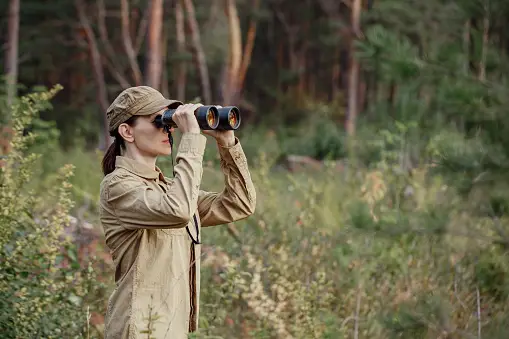
Job Outlook and Advancements in Park Service Careers
The demand for park rangers is expected to grow in line with the public’s interest in outdoor recreation and conservation. As stewards of state or national parks, rangers play a crucial role in preserving these natural resources for future generations while also enjoying a fulfilling career path.
Average Salary and Compensation for Park Rangers
The average park ranger salary varies based on location, experience, and the specific park agency. Senior park positions typically offer higher compensation, reflecting the increased responsibilities. It’s important to research salary info for the particular type of park ranger position you’re considering to have realistic expectations about compensation.
Career Progression and Promotion Opportunities
With experience, park rangers can look forward to career progression and promotion opportunities. Advancements may lead to supervisory roles or even to becoming a park superintendent, where one oversees extensive operations and contributes to strategic planning for park management and preservation.
Preparing for a Park Ranger Career
As you prepare to pursue a career as a park ranger, focus on gaining the relevant skills and experiences that will make you a strong candidate. This could mean volunteering, participating in internships, or furthering your education in environmental or conservation fields.
Tailoring Your Resume for Park Ranger Positions
Your resume is your chance to showcase why you’re the ideal candidate for a park ranger position. Emphasize any hands-on experience with conservation projects, law enforcement, or public education. Highlight the skills that demonstrate your ability to excel in the multifaceted role of a park ranger, such as communication, leadership, and a deep-rooted commitment to environmental stewardship.
Strategies for Successful Park Ranger Job Applications
When applying to be a park ranger, it’s crucial to meet the training requirements, showcasing your readiness to handle diverse scenarios, like aiding injured park visitors. Tailor your application to demonstrate your knowledge and preparedness for the role’s unique demands. Emphasize any relevant experience, especially in outdoor settings, first aid, or conservation work. A well-crafted cover letter can also further highlight your passion for the profession and dedication to preserving natural resources.
Resume Tips for Highlighting Relevant Experience
Your resume should reflect a solid background in park management to stand out to hiring managers. Highlight any experience with parks and forests, including volunteer work or projects that have honed your skills in environmental conservation and public engagement. Specific roles or accomplishments in resource management or educational programming can also bolster your application, demonstrating a commitment to the multifaceted responsibilities of a park ranger.
Navigating the Job Interview Process
During the interview, be prepared to discuss your experiences and how they’ve shaped your approach to park stewardship. Expect scenario-based questions that assess your problem-solving skills in real-world park situations. Express your enthusiasm for conservation and public service, and be ready to explain how your background aligns with the park’s mission and the broader goals of the agency you’re applying to.
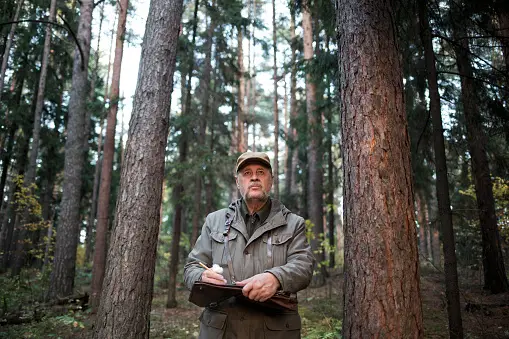
Alternative Careers Related to Park Ranger Work
If the park ranger path isn’t a perfect fit, consider alternative careers such as environmental consulting, forest management, or outdoor education. These roles also contribute to conservation and education while offering diverse challenges and work environments. Explore your options to find a career that matches your passion for the outdoors and conservation.
Exploring Jobs in Wildlife Conservation and Ecology
Wildlife conservation and ecology offer dynamic careers for those passionate about protecting ecosystems and species. Jobs in these fields may involve field research, habitat restoration, or advocacy. Each role plays a significant part in safeguarding biodiversity, requiring a commitment to ongoing learning and adaptability to address environmental challenges.
Comparable Roles: Game Warden and Environmental Educator
As law enforcement officers, game wardens ensure regulations are followed to protect wildlife, mirroring some park ranger duties. They often work in more remote areas and may focus heavily on anti-poaching efforts. Meanwhile, environmental educators play a crucial role in raising awareness about conservation issues, often working at nature centers, schools, or non-profit organizations, inspiring the next generation to value and protect our natural resources.
Wrapping Up Your Path to Guarding Green Spaces
Embarking on a career as a park ranger is a noble pursuit, requiring dedication to both the environment and public service. Your journey will be marked by continuous learning and a commitment to conserving the natural beauty and biodiversity of our parks.
Recap on the Timeline and Commitment Needed
Becoming a park ranger is not an overnight process; it requires a combination of education, experience, and training. The journey often begins with a relevant educational background, supplemented by hands-on experience through internships or volunteer work. The full timeline can vary, but it’s a rewarding path for those committed to environmental stewardship and public engagement.
Next Steps After Becoming a Park Ranger
Once you’ve achieved the title of park ranger, the learning doesn’t stop. Seize volunteer opportunities to expand your skill set, and if you’re interested in becoming park rangers, consider mentoring college students or overseeing seasonal maintenance projects. Continued professional development, such as wildlife management courses or a law enforcement training program, can open doors to advancement.
Stay vigilant with requirements like periodic background investigations and medical exams, as mandated by the office of personnel management. Lastly, remember to maintain any necessary licenses, like possessing a valid driver’s license, as these are often prerequisites for seasonal positions and other roles within the park service.
Conclusion – How Long Does It Take to Become a Park Ranger
As you stand on the threshold of a career filled with natural wonders, the journey to becoming a park ranger is as rewarding as it is challenging. Your dedication to education, hands-on experience, and the rigorous application process has prepared you for a life dedicated to the stewardship of wilderness areas. Embracing this call of the wild means committing to the protection of our nation’s natural heritage and ensuring that future generations can enjoy the splendors of the great outdoors.
The path to wearing the ranger’s badge is unique for each individual, but it is paved with a shared passion for conservation and public service. Whether your days are spent conducting educational programs, maintaining trails, or safeguarding wildlife, the impact of your work is immeasurable. The landscapes you protect and the visitors you inspire are testaments to the critical role park rangers play in preserving the environment.
Remember, the call of the wild is not just a job; it is a lifelong adventure. As you embark on this noble profession, let your passion for nature guide you, and your dedication to conservation define you. The journey may be long, but the privilege to serve as a guardian of our wilderness areas is worth every step. Welcome to the ranks of those who have answered the call to protect and serve in America’s majestic outdoor spaces.


